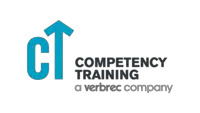Course providers in Brisbane
The following providers offer the UEE42622 Certificate IV in Hazardous Areas - Electrical in Brisbane.Entry requirements
Entry requirements set by ASQA are the basic qualifications and criteria that students must meet before enrolling in a nationally recognised course.
These requirements ensure students have the skills and knowledge needed to undertake this course.
Domestic Students
- Completed Certificate III in Electrotechnology Electrician or equivalent qualifications OR
- A current ‘Unrestricted Electricians Licence’ or its equivalent issued in an Australian state or territory.
Course fees
The estimated fee reflects the price range across training providers in Brisbane.
The course fee is determined by each individual provider and may vary depending on factors like study mode and student support availability.
Career opportunities
The Certificate IV in Hazardous Areas - Electrical will prepare you for the following roles.
EEHA Inspector
An EEHA Inspector conducts checks of electrical equipment and systems used in hazardous areas. You might work in industries such as mining or gas,...
EEHA Auditor
An EEHA Auditor carries out safety inspections on electrical equipment used in specialist areas such as mining and gas production. You might check...
Electrical Fitter
An Electrical Fitter constructs electrical equipment and circuits in a range of settings. You might design electrical plans and install electrical...
Electrical and Instrumentation Technician
An Electrical and Instrumentation Technician, or E&I Technician works with equipment to ensure it operates properly. These technicians can work in...
Safety Officer
A Safety Officer ensures that workplaces adhere to health and safety regulations to prevent accidents and injuries. You might work in various indus...
Service Technician
Their role involves troubleshooting faults, performing routine inspections, and ensuring that equipment operates efficiently and safely.
Ser...
Electrical Trades Assistant
An Electrical Trades Assistant installs and maintains a range of electrical systems or equipment. You might locate and diagnose electrical faults o...
Find a course provider
Compare all providers for the available in Brisbane to find the right fit for you.
More about Certificate IV in Hazardous Areas - Electrical
The Certificate IV in Hazardous Areas - Electrical is a vital qualification for those looking to advance their careers in Brisbane's thriving electrical industry. With a strong demand for skilled professionals in hazardous environments, this course equips students with essential knowledge and practical skills. By enrolling in this course, individuals can pave their way to exciting career opportunities such as an Electrical Technician or an Electrical and Instrumentation Technician.
Brisbane hosts several reputable training providers, including CT and AUSINET, both of which offer the Certificate IV in Hazardous Areas - Electrical through a campus-based delivery method. Studying locally not only enhances the learning experience but also allows students to network with industry professionals, making it easier to secure roles such as an Electrical Trades Assistant or an EEHA Inspector.
This qualification is linked to various fields of study, including Business courses, Engineering courses, and Trades courses. These connections ensure that students are well-rounded in their education, incorporating aspects of Oil and Gas and Mining, which are significant industries in the Brisbane area. Graduates can also explore roles like EEHA Auditor or a Electrical Fitter to further enhance their careers.
By completing the Certificate IV in Hazardous Areas - Electrical, graduates not only boost their employability but also open doors to positions in safety-focused environments, such as becoming a Safety Officer or a Service Technician. These roles are critical in maintaining workplace safety standards, particularly in Brisbane’s diverse industries where hazardous materials are often present. With increased safety regulations in place, the demand for qualified professionals continues to rise.



